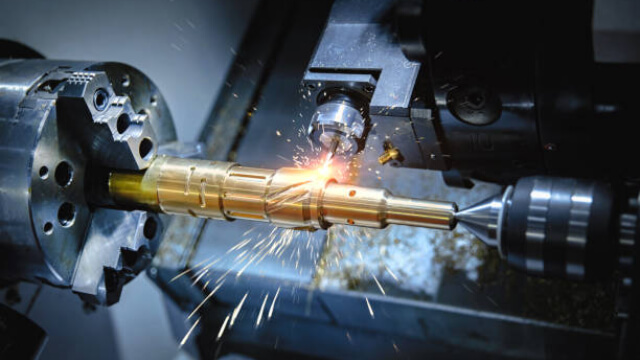
CNC lathes and CNC mills are two of the most important machines for custom machining. These machines are the backbone of many machine shops and many jobs cannot be completed without them. The CNC lathe and CNC mill are similar and can complete many similar projects, but there are important differences. Let’s take a closer look at these important machines.
Both CNC lathes and CNC mills use digital programming to produce objects from metal, plastic or other material. CNC milling and CNC turning, which is done on a CNC lathe, are similar processes. However, they have some differences and each machine is ideal for certain parts.
The main difference between a CNC lathe and a CNC mill is the way the machine and the workpiece rotate. A CNC lathe rotates the workpiece or bar stock against the cutting tools to produce a shape. In a CNC mill, the cutting tools rotate around the bar stock. The difference is subtle, but it allows each machine to produce certain objects or make certain cuts with speed and efficiency.
CNC lathes and CNC mills differ slightly from each other with regard to their functions. CNC lathe is ideal for conical or cylindrical parts, while a CNC mill can handle more complex shapes. A CNC mill can produce flat surfaces, deeper holes, pockets, planes, grooves or edges as required. CNC turning machine generally produces forms, parts or objects which have a conic or cylindrical shape.
CNC lathes and mills typically use metal bar stock to form a part or article. This is usually some type of aluminium or steel, but can include many other metals such as brass, copper alloys, or high nickel, titanium or carbon alloys. Other CNC lathes and mills can also work with various types of plastic or wood.
The ease with which a CNC machine can machine a metal or other material depends on several factors. The hardness, flexibility, melting point, conductivity and other properties of the material can play a role in the machining process. Some CNC lathes or mills are not designed to work with very tough metals. Some metals crack or bend more easily and machines designed for very tough metals may not be effective. It’s also important to consider the cost of the metals and what you need the part or item to do. Aluminium, for example, is easy to machine and very affordable, but it may not work well for parts that are subject to high stress, corrosion or extreme temperatures.